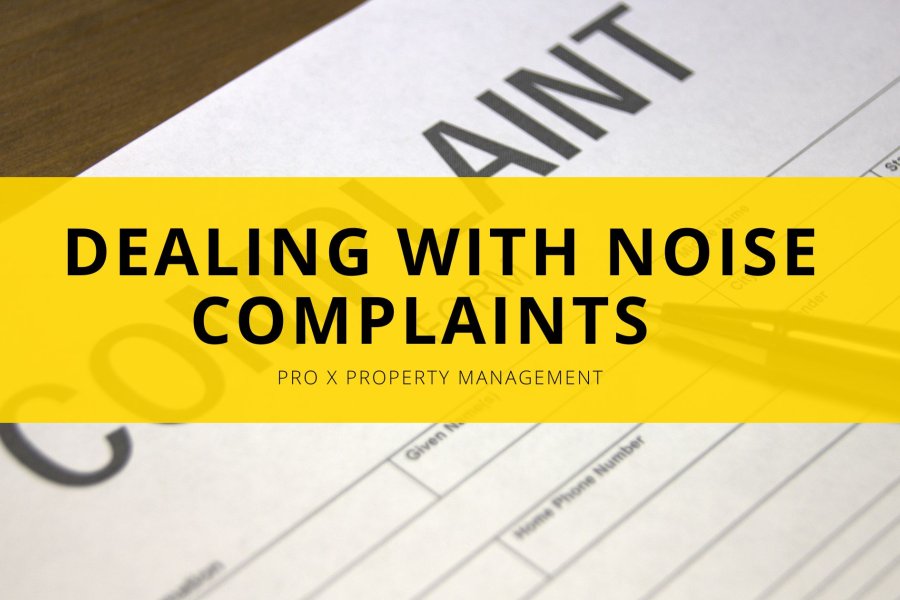
Noise complaints are one of the most common types of complaints from tenants. At the beginning of a tenancy, the landlord is expected to set rules about noise levels and what is considered acceptable or not.
As a landlord, it’s your duty to inform tenants of the possible implications of complaints in case they fail to follow the rules.
Occasional gatherings are considered normal and generally acceptable, as long as these events don’t happen often and during inappropriate hours.
If tenants do get a bit too rowdy and the noise becomes too much for the neighbors, you should expect to receive complaints from the HOA, building manager, or even a police officer.
As the owner of the property, it’s your responsibility to ensure that your tenants are being respectful to those around them.
If ever your tenants cause unnecessary noise, you’re expected to handle the complaints as they arise. It’s crucial to know the process for dealing with noise complaints so you can follow the legal process accordingly.
If you receive noise complaints from a neighbor, HOA member, or building administrator, these simple steps can guide you:
Assess the Validity of the Complaint
The first thing that you should do when you receive a complaint about noise is to assess its validity before taking any action. Try to figure out the nature of the complaint, as well as its severity.
It’s recommended to check with your local jurisdiction if there are laws that limit the levels of noise decibels. If so, check if the tenants indeed exceed the maximum allowable limit.

Before you confront the tenants, make sure that the complaint is valid and that the noise wasn’t caused by someone else. When managing noise complaints, you should also check with the other neighbors to see if they’ve noticed the same noise from your tenants.
Find Out the Cause of the Noise
The next thing you should do is identify the cause of the noise. Tenants have the right to make noise that is considered acceptable.
Before you decide to reprimand your tenant, you have to determine what triggers the noise in the first place. Here are some common reasons for noise complaints:
Parties
Unless specifically stated in the lease agreement that house parties are prohibited, tenants have the right to throw occasional parties and gatherings.
If the tenant is hosting regular events at the property with loud music and other noises during unreasonable hours, then the complaint is indeed valid. If this is the case, you should take disciplinary action as soon as possible.
Pets
If tenants with pets are renting your units, you can expect to hear dogs barking occasionally. If a tenant’s dog is barking constantly, especially when other residents are supposed to be resting, then this isn’t acceptable.
If you receive a complaint about a pet, you should talk to your tenant to ensure that the pet is okay. The tenant may need to have their dog checked if the barking is beyond normal for a dog.
On the other hand, if your property has a no-pet policy and you receive a complaint regarding pet-related noises, it’s essential to investigate this and deal with the situation as soon as possible.

This is a breach of the lease, and you may need to take further legal action.
Arguments
Disagreements are common among household members. If these disagreements result in loud screaming that goes on at unreasonable hours, however, then you should take necessary action.
Loud Footsteps
If your rental unit is a multi-level property, it’s common to hear footsteps from the unit above. If a tenant often hears the tenants above jumping and running around late at night, however, then it’s no longer acceptable and should be addressed accordingly.
Decide Whether the Complaint Is Valid or Not
After doing your own investigation, you should then decide whether the complaint is valid or not. If it’s not a valid complaint, make sure to let the complainant know that after looking into the situation, there’s no evidence that proves the validity of the complaint.
On the other hand, if the complaint is valid, you should address the complaint based on the severity of the issue.
If the tenant had a one-time offense of hosting a house party with loud music, you should issue a warning and remind them to limit their noise, whatever the reason may be.
If the tenant fails to heed your warning and the issue occurs repeatedly, then you may need to process a legal eviction based on violation of the lease.
How to Avoid Noise Complaints
Dealing with noise complaints can be exhausting because you need to investigate the situation thoroughly before taking proper action.

Sometimes, dealing with both the complainants and tenants can become too overwhelming. Fortunately, there are ways for you to avoid noise complaints from neighbors:
Include a Clause in Your Lease
It’s vital to include a clause in your lease that specifies important information about noise. Included in the lease, this clause should remind tenants to maintain a reasonable level of noise while staying at the property at all times of the day and night.
Indicate that tenants are responsible for keeping the peace between themselves and their neighbors by not doing anything that will disturb or disrupt the neighboring units and houses.
Screen Your Tenants Thoroughly
Proper tenant screening is essential to ensure that you only accept tenants who are responsible and will comply with the terms of the lease at all times.
You have to perform background checks before you accept any tenant into your rental home to ensure that they haven’t been involved in any issues with their neighbors in the past.
Hire a Rental Property Manager
Professional property managers are knowledgeable about local law and they know how to screen tenants properly.
If you don’t want to deal with this kind of complaint yourself, it’s best to partner with a reliable property manager who can handle this kind of situation on your behalf.
Conclusion
As a landlord, it’s up to you to ensure that your tenants are being respectful towards those around them. Monitoring noise levels is one way of doing so.
Still have questions about how to deal with noise complaints? Contact Pro X Property Management! We’re a full-service property management with the knowledge and experience to fulfill all your property management needs!
